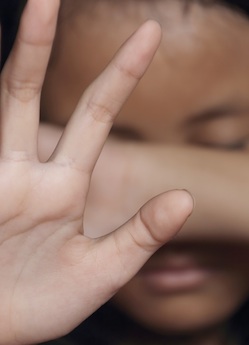By Erin Cotton
A liberal arts education succeeds in providing students with general knowledge across disciplines, ranging from history to the arts and sciences, that serves as a solid foundation for career and professional aspirations. Within the liberal arts, these disciplines are rarely learned apart from one another. Although connected, the strength of the liberal arts does not come from its discipline structure alone. Many colleges over the past few years have worked to combat social injustices and discuss issues locally, watching their dedication spread nationwide.
One of the most discussed topics of concern is the epidemic of sexual violence on America’s college campuses with federal data showing that about one in every five women will experience some form of sexual assault during her undergraduate experience. What Happens When, written by Charlotte Meehan, a playwright and Professor of English at Wheaton College, exemplifies one such powerful stance with its primary goal being “to positively impact the campus climate by sensitizing the community to the issue and empowering every individual to play a part in preventing sexual misconduct.”
The play began with the a grant from the Department of Justice, awarded with the intention of developing interventions into sexual assault on college campuses. As a means of educating students, as well as the surrounding community, on the complexities of sexual misconduct and assault, an interdisciplinary team of Wheaton faculty and staff set to work.
“What Happens When is a great example of cross-disciplinary collaboration by faculty (a playwright, director, sociologist, and anthropologist) as well as active collaboration with our students,” explained Meehan. “It was for me a great example of the liberal arts in action, i.e., professor and students taking action together on a significant problem in our culture.”
When approaching this project, Meehan felt that the student voice would be the most meaningful way to delve into and make sense of this college-culture phenomenon. With the course, Devising Theatre for Social Change, students worked to create scenes around the subjects of sexual misunderstanding and sexual violence, taking guidance and motivation from the techniques formulated in Augusto Boal’s Theatre of the Oppressed.
Meehan’s class generated more than 300 pages of transcripts after performing and recording scenes of their own creation. Many other students and faculty across the Wheaton campus and the disciplinary spectrum became involved in preparing the play which premieres in April 2015.
The product of these collaborations became the play, What Happens When, “a multimedia montage of scenarios revolving around the before-and-after moments of sexual encounters in campus life, darts back and forth between early childhood and present day to shed light on misunderstandings that persist, discussion that needs to increase, and violence that must stop.”
Out-of-classroom skills and real-world preparation seem to form the foundations of the liberal arts education. Connecticut College, similarly to Wheaton, has taken an activist approach to liberal arts engagement. On March 30, the college cancelled classes for the day in order to have a community-wide discussion and forum surrounding racism, equality and inclusion. This day of community building is essential to the educational mission of the liberal arts as these topics became illuminated by student voices and their will to lead social progress. By cross-disciplinarily creating a language around the vulnerabilities of campus life, students, faculty, and staff enabled themselves to take steps toward change together.
Both of these liberal arts colleges have publicly engaged their entire campuses and surrounding communities by addressing topics that are hard to discuss with currently limited communication resources. What Happens When addresses the idea of consent, how it is verbalized and understood, especially between college-aged students. By giving new, more expressive, language to sexual violence, professors at Wheaton hope to enlighten and empower liberal arts campuses nationwide.
“It is my hope that What Happens When opens up more dialogue about the layers of complexity involved in sexuality, sexual encounters, and sexual relationships,” stated Meehan. “But there are so many other kinds of harm that come to young adults as they grow into sexual maturity, and my main goal for this play is that it causes more discussion, more questioning, more learning, more empathy, all cornerstones of a liberal arts education.”
Erin Cotton is a junior at Wheaton College majoring in Anthropology and Creative Writing. Wheaton College is the home of the Kappa of Massachusetts Chapter of Phi Beta Kappa.




